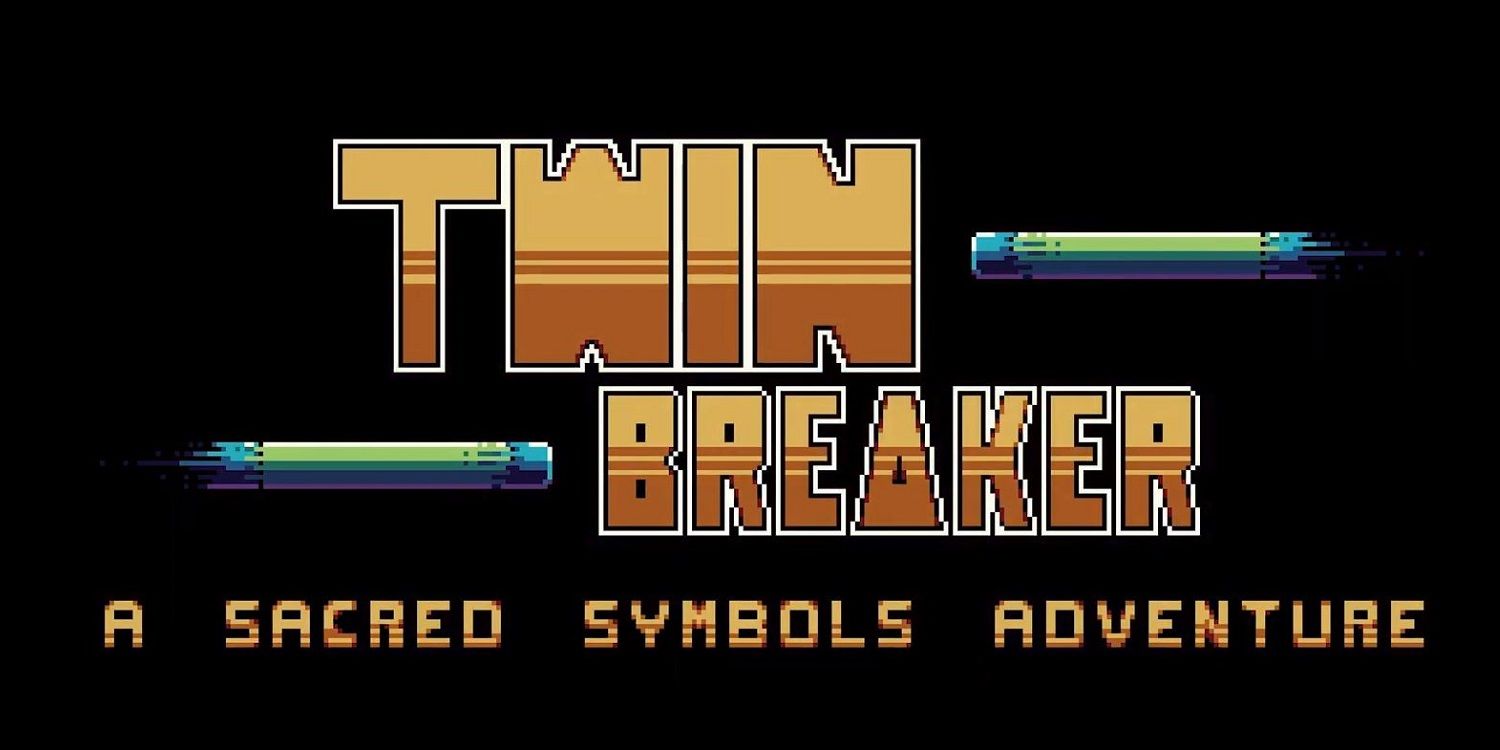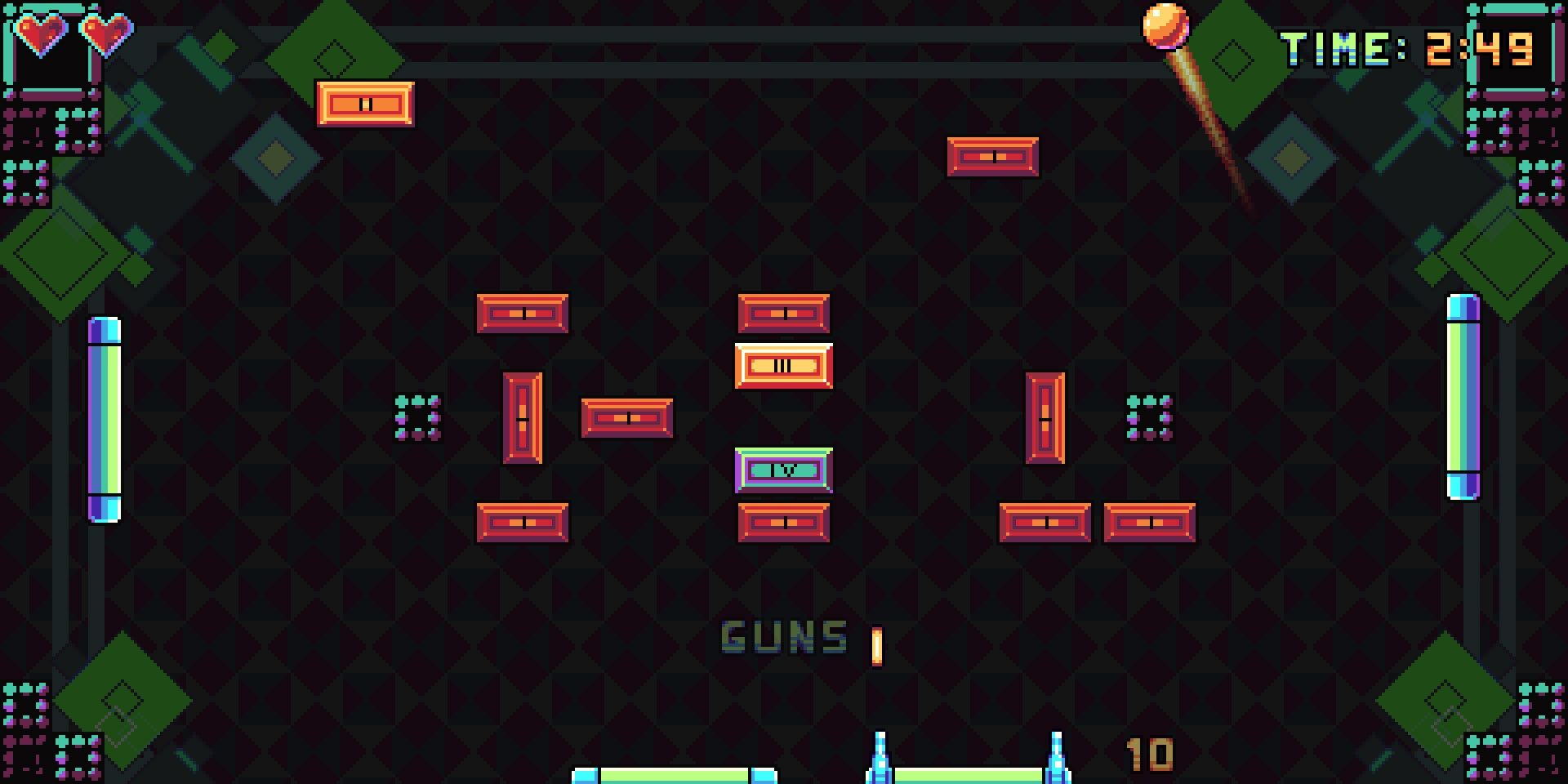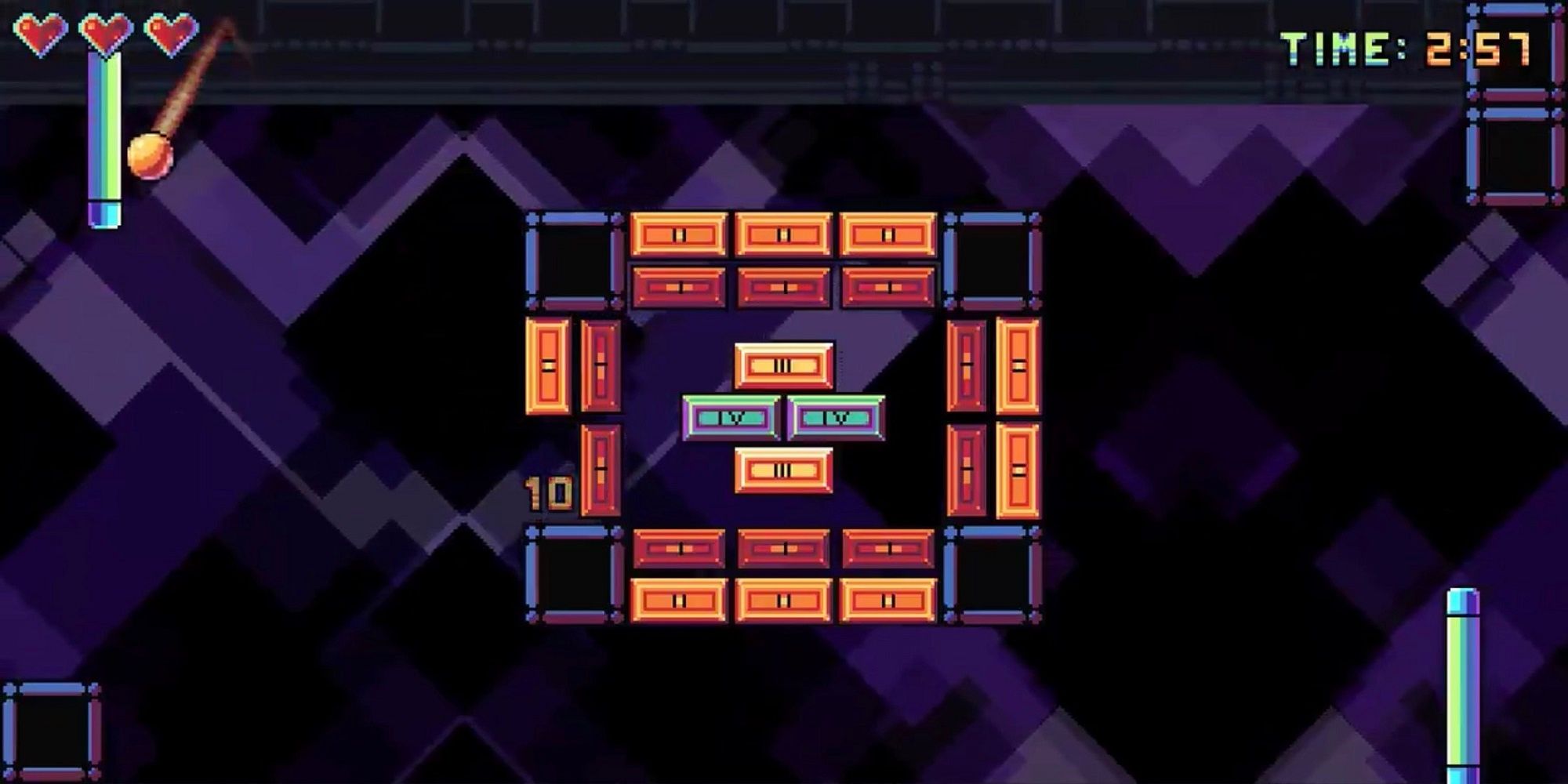When people talk about fan-made games, they usually are referring to something like Super Bernie World, a delightful mash-up of Mario with the Independent governor from Vermont. These are the games that are funded on Kickstarter, that provide a new - and often nontraditional way - of enjoying a popular IP.
Twin Breaker: A Sacred Symbols Adventure is an entirely different type of "fan game." In fact it's more like a movie or TV show tie-in. Made by Lillymo Games Inc, the game re-imagines the classic Atari title Breakout with a narrative starring one of its creators. The end result is about as strange and dissonant as it sounds: Colin Moriarty of the Sacred Symbols Podcast has forced himself into a game that didn't need him - or his co-host Chris Ray Gun - and Twin Breakers suffers for it.
The Sacred Symbols Podacst is a weekly show where its two hosts talk about all things Playstation, so its only natural that their first video game adventure is an exclusive to the PS4 and PSVita. Unfortunately that's where anything 'natural' about the adventure ends. Moriarty's writing is - from the start - trite. The game's story mode follows two space adventurers (named Chris and Colin, because of course) who must do battle with a strange alien force. Their spaceships are their only weapons and they look strangely reminiscent of paddles.
That one sentence explanation would suffice for a game where you are essentially playing Pong against yourself. But there's way too much backstory provided, including details of a world war, communique between Earth and their distant compatriots, and a whole lot of fluff. The game prides itself on providing context to the gameplay, but there's little meaning to be ascertained from its self-congratulatory story.
Luckily, the gameplay in Twin Breaker can speak for itself. The player must simply bounce a ball off of their paddle to hit bricks, being careful not to let the increasingly speedy "bouncer" fly past them. It's a pattern familiar to any fan of the '80s arcade scene, and the levels and score certainly do right by its influences.
The game hits the sweet spot of challenging; the information on screen is easy to navigate, but there's always a lot happening. Quick reflexes are important, especially if playing the game solo. Twin Breaker's biggest mix-up on the formula is the addition of a second paddle. Players must control both (one with each joystick) as the ball travels across the screen. Later levels feature the paddles on opposite sides of the screen and even add two additional paddles!
This is all made a lot easier, of course, if a second player hops in to help. 2-player is available at any point on the PS4, making this the ideal game to play in an afternoon with a friend. The "story mode" features 40 original levels that include four boss fights (chip away at their health like their a giant block) that can be knocked out in short order.
Twin Breaker also features a Marathon Mode, a Pong Mode, and a Boss Rush Mode among others. Some of these work better than others. Catcher Mode, for example, just sees the player(s) collect coins as they fall and avoid the primary enemy type Scarabs. There's a mode for pretty much any type of player, so the game certainly makes its $9.99 asking price worth it.
As the 8-bit soundtrack pulses in the background, and the ball speeds up to match its tempo, Twin Breaker excels at delivery a terrific blast-from-the-past. But as it purports being the first Breakout-inspired game with a story - and subsequently the first "Sacred Symbols Adventure," its hard to ignore its weak and unnecessary narrative. Despite itself, Twin Breaker is - more often than not - great fun.
Twin Breaker: A Sacred Symbols Adventure launches digitally on the PlayStation 4 and Vita on March 24, 2020 for $9.99. Screen Rant was provided with a PS4 copy for the purpose of this review. The game is accessible on cross-play.



